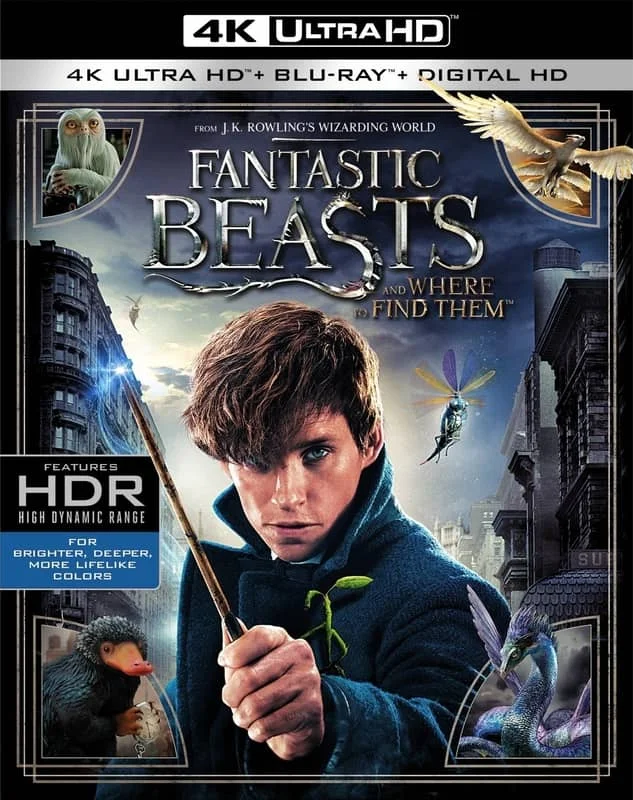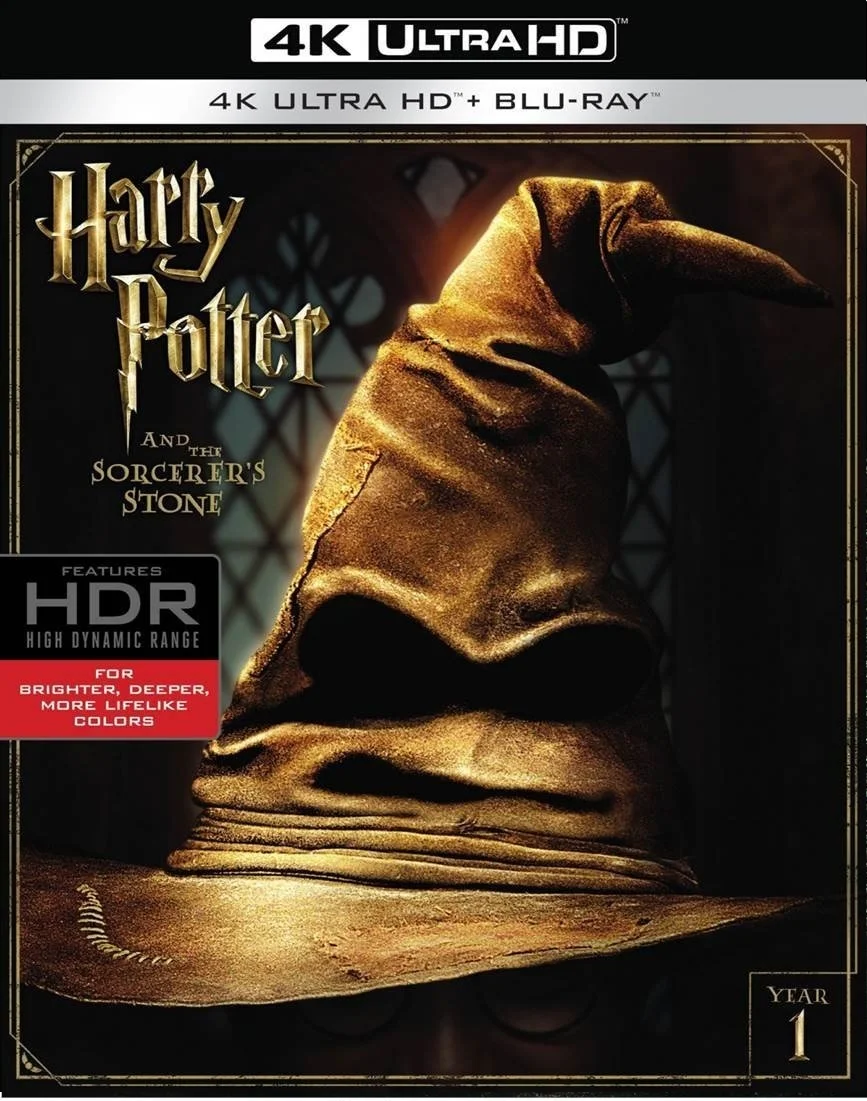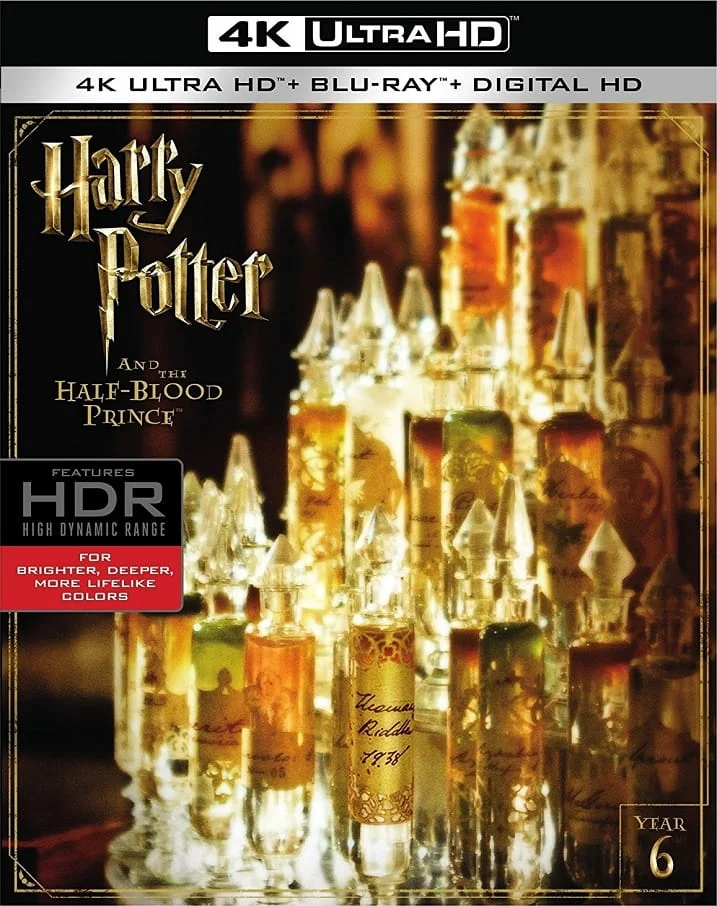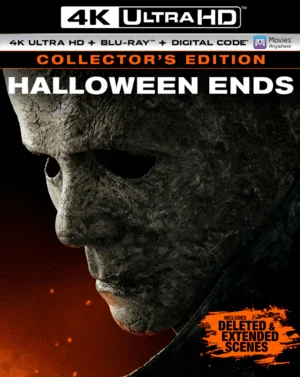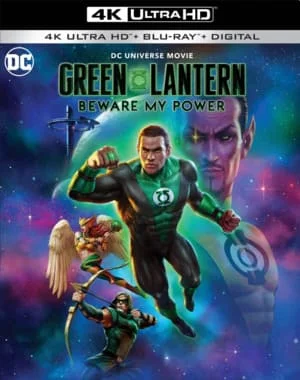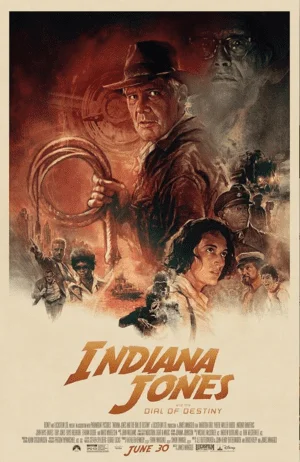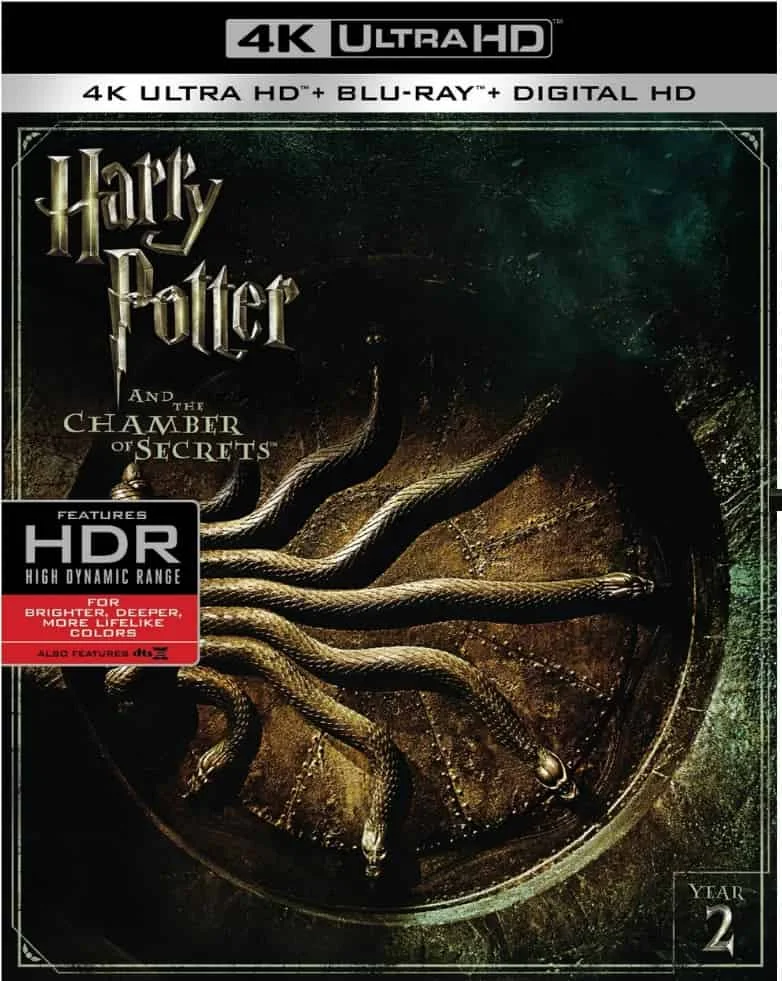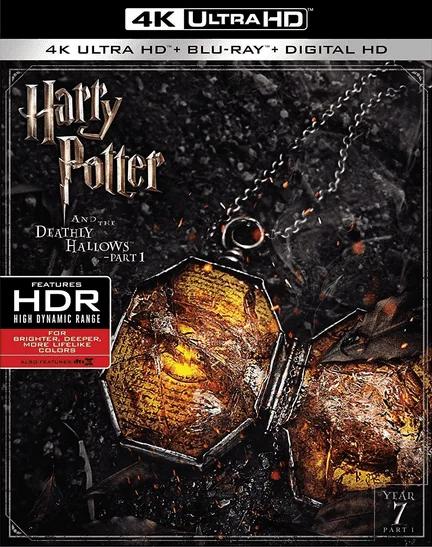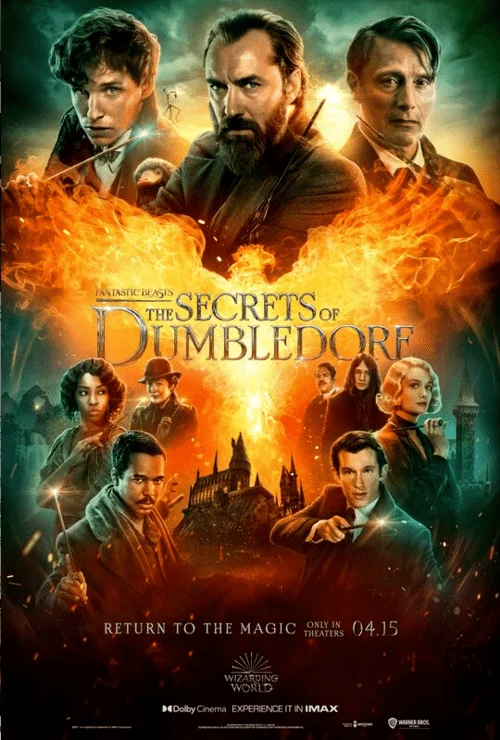
Fantastic Beasts: The Secrets of Dumbledore 4K 2022 Ultra HD 2160p
Cast: Eddie Redmayne, Jude Law, Ezra Miller, Dan Fogler, Cara Mahoney, Mads Mikkelsen, Katherine Waterston, Poppy Corby-Tuech, Maja Bloom, Paul Low-Hang, Alison Sudol, Callum Turner, Richard Coyle, Jessica Williams, Wilf Scolding, Kazeem Tosin Amore, Noor Dillan-Night, William Nadylam.

The plot of the trilogy will tell about the confrontation of good and evil wizards against the backdrop of World War II. The future headmaster of the wizarding school "Hogwarts" Albus Dumbledore (Jude Law) and his sworn enemy and former close friend Gellert Green de Wald (Mads Mikkelsen) enter into the fray.
Fantastic Beasts: The Secrets of Dumbledore 4K Review
In the finale of the second Fantastic Beasts, the evil wizard Gellert Green-de-Wald (then Johnny Depp) promised to cleanse the world of Muggles, and then informed Creedence (Ezra Miller) that he was actually... Dumbledore. This caused bewilderment not only from the hero, but from a good half of the audience. And the mighty sorcerer did it in order to set the young obscurantist against his sworn friend and kill the rival, because the Green de Wald (now Mads Mikkelsen) for some reason can not hurt Albus Dumbledore (Jude Law).
In the first scene of the third film, we are given a hint as to why. On a "date" in a restaurant, it turns out that the two wizards are not connected at all by a long-standing friendship, but by a stormy romance that ended when Gellert began to adhere to fascist views of the world order. And the wizards cannot fight because of a ritual they performed when they were young: a spell bound with their blood in an amulet will kill whoever raises his hand (i.e. wand) to the other.
Dumbledore's coming-out in 2022 will no longer surprise anyone - Joan Rowling revealed the character's sexual orientation a few years ago. Therefore, the first mystery promised in the credits turned out not to be such a mystery. The title in general and its Russian localization in particular are misleading: it is not so much about Albus Dumbledore as about the Dumbledore family as such. Another secret can compete only with the unraveling of Rey's origin from Star Wars, and for the rest, don't go to Rita Skeeter - everything was already known from the Harry Potter books.
It would have been much more logical to shorten the title to "Dumbledore's Creatures", because there are no mysteries, and of the fantastic animals around which the franchise was originally invented, only the audience favorites remained (a pocket lucotrus and a sniffer) and a couple of newcomers - dancing crabs and baby cilini. The arthropods were invited into the frame for the audience to giggle a little, and the cilini became something like a living Cup of Fire (kind of important for the development of the plot, but could have been replaced by anything). But there were so many minor characters that they couldn't fit into any bottomless suitcase enchanted to expand internally.
Remember the spell that made the treasure in Bellatrix Lestrange's vault multiply by touch? Well, the characters in "Creatures" multiply exactly the same way when touched by Joan Rowling and her co-writer Steve Clowes. There are no more major and minor lines, and the movie is essentially made up of sometimes pointless and not the most consistent shifts.
In fact, the entire two-and-a-half hour running time (it's the only one the film has left that's fantastic) Damlebdor uses his associates like owls and sends them to different locations: for example, to deliver a message to the president of the International Confederation of Mages that consists of just one sentence. Or gathers everyone together for lunch at Hogwarts, only to teleport straight from there. Overall, instead of showing how a sense of impending war is slowly seeping into every corner of the magical and non-magical community, and leading up to one of the most important battles in the history of "Potteriana", the plot slides more into Santa Barbara with figuring out who belongs to whom and how deeply everyone suffers because of it.
This trend dates back to The Crimes of Grindel Wald and seems to have been intended by Joan Rowling and Steve Clowes to lead up to the same central message of "Harry Potter": love always triumphs over evil. Part of the triumph of lighter feelings in the threequel has its place, but one of the main romantic lines of the film is just deprived: Newt's beloved Tina (Katherine Waterston) appears only for a couple of minutes closer to the finale, although she was the main character in the previous installments.
The franchise, which has survived against a parade of cancellations (first the Rowling scandal, then Depp's firing, Kevin Guthrie's prison sentence for rape, and now Ezra Miller's numerous transgressions), is not even saved by the old Mads Mikkelsen. You can't deny that the Danish actor suits the role of the dark magician much better than Depp, but they don't let him reveal himself to the full extent, just like any other hero. It seems that the key to salvation is to put everyone under a spell of oblivion, forcing to forget forever the plot of the existing trilogy, and to make three new pictures devoted to Jacob Kowalski (the incomparable Dan Vogler) - the only character who has any development.
In the end, the only thing in which "The Dumbledore Mysteries" fits the zeitgeist is in its general uncertainty. At best, it could have successfully hit the agenda and become a dystopian reflection on current events, unintentionally, as "Batman" did. At worst, it could have been a good entertaining and nostalgic blockbuster, which was more or less what the first part did. However, the picture is stuck somewhere in between and would probably have sounded much more entertaining in the retelling of Professor Beans, a nerdy ghost who teaches the history of magic and is able to put any Hogwarts student to sleep with his lectures, except for Hermione Granger.
File size: 20.0 GB
Trailer Fantastic Beasts: The Secrets of Dumbledore 4K 2022 Ultra HD 2160p
Latest added movies
Comments on the movie
Add a comment
 like
like do not like
do not like